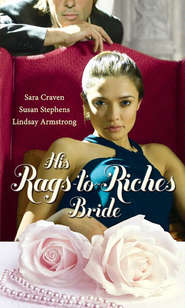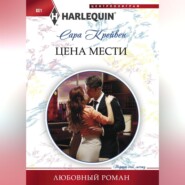По всем вопросам обращайтесь на: info@litportal.ru
(©) 2003-2024.
✖
Wed To The Italian: Bartaldi's Bride / Rome's Revenge / The Forced Marriage
Автор
Год написания книги
2018
Настройки чтения
Размер шрифта
Высота строк
Поля
He looked at Clare, his expression cool—even remote. ‘Your godmother’s timing is impeccable, mia bella. She has saved both of us from a terrible mistake.’ He paused. ‘I am going to greet her now, but you may prefer to go into the garden. I will send one of the maids to find you in a little while.’
‘Yes.’ Her voice was barely audible. ‘That might be—best.’
She went across to the French windows, almost running. Stumbling a little.
She thought she heard him say, ‘Chiara,’ but she didn’t stop or turn. Just kept going, out into the dazzle of the sunlight, her bottom lip caught painfully in her teeth and the phrase ‘a terrible mistake’ reverberating over and over again in her head.
CHAPTER EIGHT (#ulink_cbabd653-1e39-5c3a-a257-4903d8151048)
PART of her wanted to die of shame. But another, and more realistic part of her knew that a life in which she’d never again feel his arms round her or taste his kisses would be total desolation anyway.
I could survive that—just, she thought. What I can’t bear is that very soon I’ll be leaving here—and I’ll never see him again. Never hear his voice, or see his mouth curve into that slow, amused smile.
It was as if she’d been afforded a glimpse of Paradise, then had it taken away for ever. And that was the most devastating realisation of her entire life.
It was useless to argue that she and Guido Bartaldi had known each other only a matter of days, and that all she was suffering from was a severe case of physical attraction, which could soon be cured.
Her heart told her unequivocally that for her it went much deeper than that. That she wanted to spend the rest of her life with him—laughing with him, fighting the occasional battle with him, making him happy as she knew only she could.
Except that wasn’t the way life worked out. Because Guido had his own plans, and they did not include herself. Unless she was content to exist on the margin of his life, like the woman in Siena.
Clearly he saw no reason why his private life could not be conducted on two levels. Which was why he planned to marry a pretty girl with whom he hardly shared a thought, while conducting other more fulfilling liaisons at a safe distance. The cynicism of it—and the sadness—made her want to weep, even though she knew she should really despise him.
But she couldn’t.
‘Fool,’ she lambasted herself. ‘Sad, pathetic idiot.’
She’d found a secluded bench under a flowering hedge a long way from the house, and she crouched there, her arms hugged protectively round her body, deathly cold in spite of the sun’s heat.
Telling herself that Guido would not repeat his ‘terrible mistake’ and that she’d be safe from any further advances from him was poor comfort. It would not save her from hungering for him, she thought drearily. But at least it might leave her with the tatters of her self-respect.
She glanced at her watch and got reluctantly to her feet. She’d been missing for nearly two hours, and lunchtime was approaching. She didn’t want search parties being dispatched for her.
She’d been in too much emotional turmoil to take note of the exact route to her refuge, but it hardly mattered as all the paths in the grounds would lead back to the villa.
But not necessarily to the part she knew, she discovered, as she emerged into a narrow cedar-lined avenue which took her only to a small Romanesque building with a campanile beside it, which she supposed must be the Bartaldi family chapel.
The house, she saw, was some distance away to her right, and she’d come out at the rear of it.
She checked, shading her eyes as she looked up at the elaborate stone frontage of the chapel. Some of the figures of saints that ornamented it looked as if they had seen better days, and some guttering was hanging loose.
Wondering what it was like inside, she tried the handle of the heavy wooden door, half expecting it to be locked, but it opened easily and she went in.
The interior was dark, most of the light coming from a round stained glass window above the altar which had been partly boarded up. The smell of incense lingered in the air, along with the more pungent odour of dust, but none of the candles were lit, and there was a down-beat air of disuse about the place which disappointed her.
She was turning to go when a door at the side of the sanctuary opened and Tonio Lerucci came into view, carrying a sheaf of papers.
He paused in obvious astonishment when he saw Clare. ‘Signorina Marriot—what are you doing here?’
Clare shrugged. ‘I like old churches. Am I trespassing?’
‘No, no,’ he said hastily. ‘At least not if circumstances were normal. But you see the chapel and, even more, the campanile were damaged during the last earthquake, and we cannot be certain how safe they are.’
‘But you’re here,’ Clare pointed out.
He laughed. ‘Yes, but I am not an honoured guest of the Bartaldi. I’m here to make a preliminary inspection before the architect comes next week to assess what will need to be done to restore the chapel again.’
‘So it’s going to be repaired.’ Clare looked round again. ‘I’m glad. It doesn’t look too bad. Just neglected.’
‘I hope not, but we cannot tell until the actual structure is examined. The campanile, I think, will have to be demolished, but perhaps the repairs here will not be too extensive.’ He grinned. ‘If they are, I can see Guido becoming very impatient.’
Clare followed him out, and waited while he locked the door. ‘I didn’t realise he was so religious.’ She tried to keep her tone light.
‘As to that, like most of us, he does his best,’ Tonio said, shrugging. ‘But the restoration of the chapel is close to his heart as he intends to be married there, and soon.’
‘Oh,’ Clare said in a hollow voice, as sudden pain transfixed her. ‘I—didn’t know.’
‘Not many people do. It is quite a recent decision.’
‘Does Paola know?’ Clare strove to keep her voice calm. ‘Because I’d have thought his bride should have some say in the matter.’
A couple of Tonio’s papers fluttered to the ground, and he bent to retrieve them. ‘No doubt he will choose his own moment for that,’ he said vaguely. ‘Maybe it would be best to mention nothing.’
‘Of course.’ Clare smiled tautly. ‘I hope she’ll find it a pleasant surprise.’
‘The Marchese Bartaldi’s wife will always have every reason for happiness,’ was the formal reply.
Oops, thought Clare. Avoid any hint of criticism when speaking of revered employer. I expect I already have a black mark for steaming in there this morning. It must have been obvious I was spoiling for a fight.
In a hurried change of subject, she asked how many people worked on the Bartaldi estates, and was shocked by his answer.
‘That many?’ She swallowed. ‘And do you know them all?’
‘I hope so. You must understand, signorina, that many generations of the same families have worked here.’
‘I see.’ Her tone was thoughtful. ‘So, if I said Marco’s cousin, you’d know who I meant?’
He frowned slightly. ‘I might not be able to put a face to him at once. Why do you ask?’
‘Oh, I came across him earlier today, working in the garden.’ She paused. ‘He’s quite—spectacular. You wouldn’t overlook him very easily.’
‘Then he does not resemble Marco, who is like a mouse,’ he said drily. ‘You disapprove of him, signorina?’
‘Oh, please, won’t you call me Clare?’ She smiled at him. ‘After all, we both work for the Marchese,’ she added with a touch of constraint.
He hesitated oddly, then made her a slight bow. ‘As you wish—Clare. But we were speaking of Marco’s cousin.’
‘Yes.’ She bit her lip. ‘He was hanging round the pool area, and there was just something—although I expect I’m being unfair, and he’s a very good gardener.’













